Jason Franklin was a scout team linebacker for Arizona State University known by friends and teammates for his work ethic, attitude, dedication. While in college, Jason suffered three documented concussions. After college, Jason became increasingly angry, agitated, and began distancing himself from others. In 2018, Jason took his own life at age 26. After his death, his family donated his brain to the UNITE Brain Bank where Dr. Ann McKee diagnosed him with stage 2 (of 4) Chronic Traumatic Encephalopathy (CTE). The Franklin family shared Jason’s story in order to raise awareness for CTE and their “I Got You” Day, which honors Jason’s legacy of helping others.
It had been a tough four months. Something was going on with our only child Jason, and we did not understand it. Our happy, popular, life of the party, college football-playing kid was suddenly experiencing all sorts of “crazy” emotions and physical reactions. Rage, depression, paranoia, sleeplessness, and severe headaches. He was closing himself off from friends. What was causing this? What should we do? As the issues progressed, he moved away from us in Southern California to Arizona. But we did everything we could to continue to help him. He came home the weekend of June 30 and then again the weekend of July 4. On that second weekend, he seemed to be doing a little better. He even got a gap in his teeth fixed. Then on the night of July 14, 2018, just five days after he left to go back to Arizona, our doorbell rang. It was a police officer. She told us our son was found dead in his bathroom in Arizona. It was the end of our lives. Our only child was gone and with him, our future. A future without my son, without grandkids, without the dreams I had that were so deeply woven into the thoughts that swirled in my heart and mind.
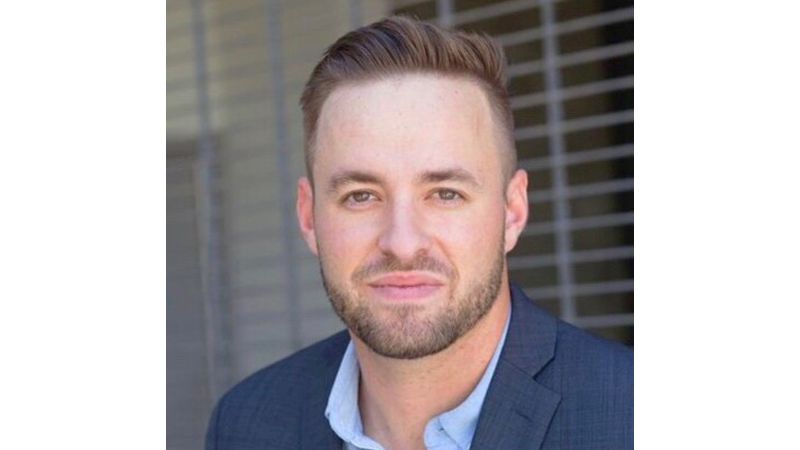
The happiest, funniest person I knew
Jason Garrett Franklin was born May 6, 1992, in Los Angeles, California. He came into this world the happiest baby bringing joy to everyone around him. He didn’t cry much. He just laughed and smiled. Everyone told me how lucky I was.
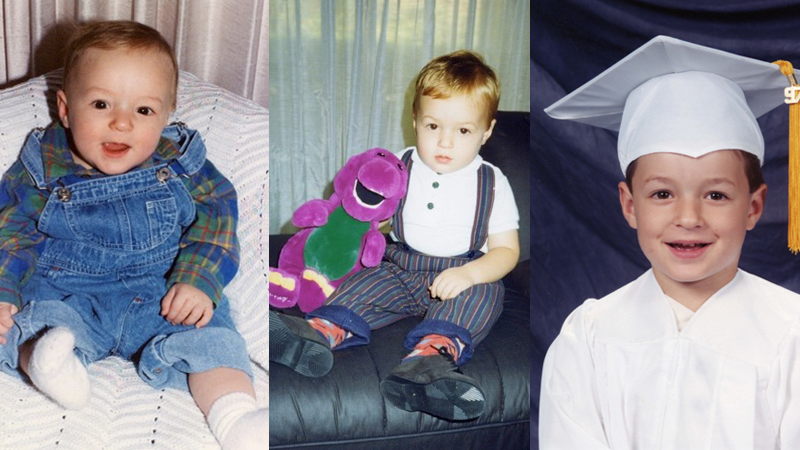
Jason was the most social person I think I have ever met. He and I shared the gift of gab and the desire to entertain and engage everyone we met. Jason entertained everyone constantly, whether it was one on one or in crowds. He had his goofy impressions, crazy dance moves, amazing stories, and hysterical high-pitched laughs.
His vice principal at Chaminade College Preparatory School in Los Angeles told a story about how whenever he would have a prospective family walking with him around Chaminade, he would seek Jason out. Jason would introduce himself and spend the next several minutes telling them about the school, the teachers, the students, you name it. I am sure he convinced many a family to bring their children there. He could truly talk to anyone about anything.
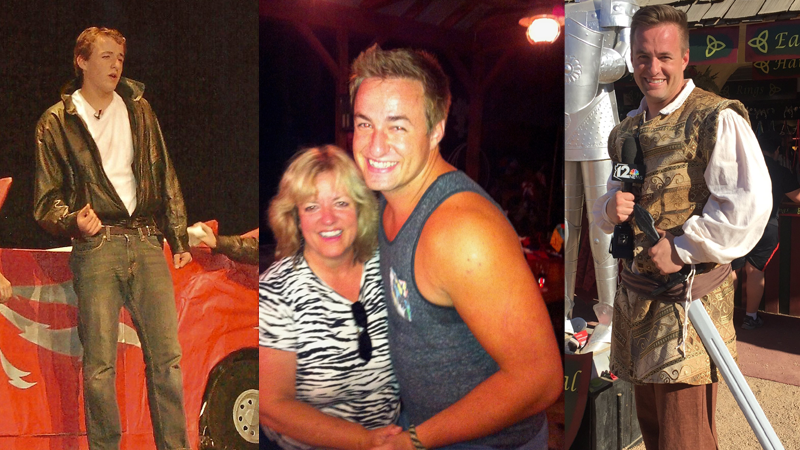
Sports and football
Jason loved sports. He played so many, but baseball and football were his favorites.
He played baseball from the age of two through 18. Like everything else Jason did, he jumped right in to T-ball. He had no shyness at all. He walked up to the four and five-year-old’s in the program and introduced himself. In the outfield Jason would jump up and down with the same joy and happiness he maintained throughout his life.
During Jason’s final year of youth baseball, his 13 year-old all-star team made it to the Pony World Series before losing 1-0 to Puerto Rico in the finale. Jason was crowned the World Series batting champion.
In high school, Jason played for the Chaminade Eagles baseball team. He loved his teammates and had the greatest time in the dugout motivating and inspiring them.
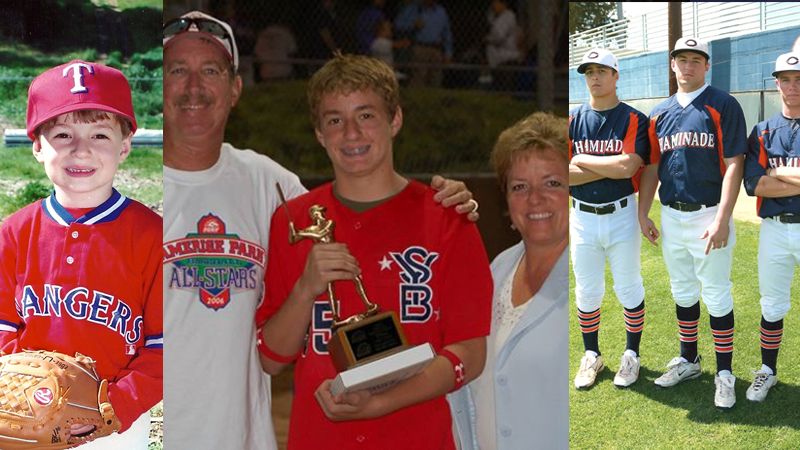
Baseball was great, but Jason fell in love with football. He believed it was a better fit for his personality. He loved the camaraderie, the importance of working together as a team and the thrill of making big plays. I loved to watch him play, but I was always afraid he would get hurt.
Jason had such joy and excitement on the field. He’d boisterously rejoice every time he made a big play. Half the time he would get warnings by officials to manage his celebrations, but light reactions were not in his nature. Jason’s high school teammates loved his halftime speeches. Only they know what he said, but I am sure he was motivational and made everyone smile in the face of any second half adversity.
Jason received scholarship offers from small schools to play football, but he wanted to be a part of something bigger. He chose to walk on at Arizona State University after being contacted by a linebackers coach. We supported his decision as we saw how much it meant to him to be a Sun Devil and play in the Pac-12. It was his dream come true.
At ASU, Jason’s personality was on full display. His natural charm landed him roles in front of the camera as a host and entertainer with shows such as “Franklin Knows Best.” He created his own blogs, “Pregame at Franklins” and “Excuse My Moderation” where he discussed his opinions on all sorts of subjects. “Franklin Knows Best” was my favorite. It was a feature show on NBC 12 Sports in Phoenix. It was Jason at his best, coaching a girls’ powder-puff football team, interviewing kickball players, trying out for the Phoenix Mercury practice squad, riding in a supped-up car on a track, dressing up and throwing axes at the renaissance fair. The station put him in many bizarre situations, and he was hysterical every time. You can see examples of Jason’s work at www.jasonfranklin55.com.
At ASU, Jason was a scout player for much of his career. Most scout players quit because they get inferior equipment, they aren’t respected by the coaches, and they take abuse with little shot at playing time. But Jason did not quit. Jason knew his job was to make the team better. There was no glory in it for him. It was about his team. Of course, Jason was not completely selfless. He did yearn to be recognized for his efforts. He was ecstatic when he earned a scholarship from ASU in his junior season.
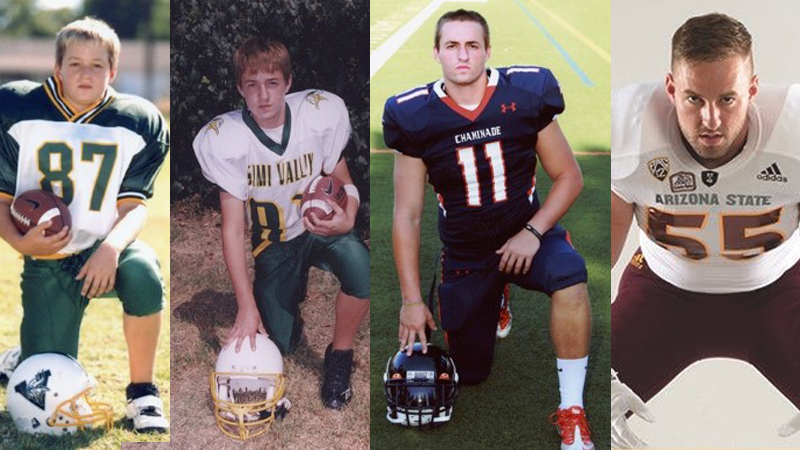
“There are no words that I can explain. All the work we have put in. All the hours. Some of these guys, they get their school paid for. We did it voluntarily because we love this game,” said Jason at the time. “To be a walk-on on this team for as long as we have, you got to look at it as a game and you got to love this game or else you won’t survive.”
Our last football memory with Jason came at Jason’s last ASU football banquet following his final season. During the banquet, the various MVP’s were named. Then the Glen Hawkins Award for Scout Player of the Year was announced. We could tell from the speech that the award winner was going to be Jason and our family became extremely excited. When they named Jason as the winner, we stood up and cheered and then to our utter amazement we saw the entire ASU football team stand up and cheer more for Jason than they had for any other player that night. It was evident how my son was beloved and respected by his teammates.
The injuries
Jason was lucky with injuries in his youth and high school football career. That luck changed in college.
Jason suffered one concussion during his first couple of years at ASU. Then in August 2014, just after receiving his scholarship, Jason suffered a severe concussion. At the time, a company named TGen had been placing sensors in football helmets to track the impact of concussions through blood and urine analysis. After Jason’s concussion, he was told it had been the worst hit they had recorded. They also noted his blood and urine counts were the highest they had seen in any athlete after a concussion.
Jason was taken out of play for about a week. A week later, he was put back in and almost immediately sustained another concussion. We’ll never know if this was really a new concussion or further damage associated with the original concussion. He was taken out again for a couple of weeks. Once again, right after he was put back in, he sustained a third concussion. After this last concussion, he was really hurting. He was taken out of play for about a month.
After the third concussion, I was concerned the team should not let him play again and he went to see his team neurologist. The team neurologist indicated Jason had passed all the tests and was clear to play. The decision was up to Jason. Of course, Jason wanted to play and so it was. He played two more seasons after that. To this day, I believe the doctor and coaches should have stopped Jason from playing again.
Jason’s friends noted his personality changed for about six months after this series of concussions. In fact, Jason also noted this in a Cronkite School News documentary and in an ESPN special on concussions.
Jason’s last four months
It was Easter Sunday 2018 when we first really noticed an issue. We took Jason to brunch. He hardly ate anything. He seemed very agitated. Our conversations with him over the next several weeks were very difficult.
Then on April 29, things seemed to completely go off the rails. We were going to Jason’s house in Arizona to meet him for lunch. When we arrived, we discovered he left the house through a window in the bathroom. He did not arrive back home until about 6 p.m.
We came back when we heard he was home. We found multiple neighbors standing outside around the house. Jason came running out of the house telling me his roommate had a gun and was trying to kill him. The police were called. They believed Jason was suffering from some sort of psychotic episode and suggested we take Jason to the hospital immediately. We tried to persuade him but he refused to seek help.
We took Jason back to our house in California. He ate a little and then went to sleep. Not too long afterwards, Jason woke up and started saying his dad was going to kill him. He said he heard us talking. He started to get more and more agitated. He was enraged and telling us he would kill us first so we couldn’t kill him. We kept telling him that we loved him and would never hurt him. Given Jason’s size and strength, I knew we could be at risk, so, I dialed 911. The police talked to Jason and decided to put him on a 5150 hold, which is a three-day hold to ensure a person is not violent or suicidal.
The day after Jason was released from the hold he decided to go back to Arizona. I tried to stop him, but he was determined to go.
About three weeks after Jason returned to Arizona, he began having headaches and started hearing siren-like sounds in his head. He went to the hospital, but doctors could not detect any issues.
In early June 2018, we noticed Jason was spending less and less time on social media and stopped all of his blogging and video activities. He was also not returning calls to his old producer who was trying to get him to start the “Franklin Knows Best” segments again. He stopped responding to e-mails. He missed one of his best friend’s weddings. We talked with him consistently during this time and even drove to Arizona a few times. But he continued to say he was OK.
“I’m just a little tired,” he’d tell us.
Our concern grew as we saw his agitation and anger level growing. Jason was seeing a psychiatrist, but the psychiatrist said he saw no signs of mental issues other than normal growth concerns for Jason’s age.
Jason returned home to California for both the weekend of June 30 and over the Fourth of July weekend. He seemed more withdrawn than ever and would get lost in long, blank stares. He was not sleeping well. He was having memory problems. He had no money and couldn’t remember how to get more money out of his bank account. He would go for long walks to try and calm his head.
He returned back to Arizona on July 9. A couple of days later he cancelled a date with a girl via an odd, nonsensical text. On the evening of July 13 he went walking at 11:00 p.m. and did not return until sometime the next morning on July 14. After returning, his roommates said he seemed fine. Both of them left the house and sometime after they left, Jason took his life. According to the toxicology report, Jason had no drugs or alcohol in his system at the time of his death.
The diagnosis
After Jason passed away the coroner in Arizona, who was familiar with Jason’s history, recommended we donate Jason’s brain to Boston University to be analyzed for Chronic Traumatic Encephalopathy (CTE). It was at that point that everything started making a little sense. Could this have all been a result of injuries he sustained playing football?
Dr. Ann McKee, Director of the UNITE Brain Bank, performed the brain pathology analysis. She found Jason was suffering from Stage 2 (of 4) CTE with nine CTE lesions throughout multiple parts of his brain.
When Dr. McKee did the initial Coronal dissection, she noted Jason had something called a Cavum Septum Pellucidum (CSP). It had deteriorated along with the space present between the two sides of his brain. CSP is one of the distinguishing features of individuals displaying symptoms of CTE.
The CTE damage was mostly in the frontal lobes of the brain that control impulse, judgement, violence, aggressive behavior, depression, and suicidality. Dr. McKee indicated the disease was advanced and shocking for a 26 year old. The pathology report showed the nine CTE lesions in Jason’s brain were easy to see and were found in the motor cortex, superior frontal cortex, inferior frontal cortex and dorsal and lateral frontal cortex. Dr. McKee noted that Jason had probably been suffering for longer than we were aware.
Football is now a conundrum for me. We have always loved to watch the sport. But, given that football was a major contributor in my son’s death, how can I still love and watch this game?
Jason loved the sport of football from the core of his being and he would be devastated if he found me trying to do things to end the sport. So, as I begin my search for a new purpose in life, I have to keep in mind both what my son would have wanted me to do against my own feelings about the game and its impact on our family. I am certain that I will work to seek changes in football, especially by advocating for youth athletes to play flag football instead of tackle football. I will also support those who are trying to better understand, diagnose and treat CTE and, of course, I want to help further enhance concussion protocols, hit counts, treatment of scout players, and advocate for better rules regarding forcing medical retirements.
I vow to do all of this, but to work to eliminate football entirely, that I cannot do. It would break my son’s heart.
A way to move forward – I Got You Day
Jason lived his life trying to make a positive difference to everyone he met. His vibrant personality allowed him to command every room he was in. He loved people and was always there for his friends and family.
It was important for us to honor Jason’s life through positivity. One of Jason’s favorite sayings was “I Got You.” He used it all the time for so many positive reasons. In honor of Jason, we decided to celebrate his birthday of May 6 each year as “I Got You” days. Each May 6, we will spend the day trying to help others and trying to show them that there are people out there who “got them” and are there to help get them through their day.

Our first “I Got You” day was in 2019. Our family delivered clothes, food, personal care items and toys to homeless shelters, to homeless people we encountered on the streets, to animal shelters, to food banks and to children’s hospitals. We asked our friends and family to help spread the “I Got You” spirit and they delivered beyond our expectations. We will continue “I Got You” day every year and promise it will grow and grow.
Jason, dude, I will miss you and love you for the rest of my life. I promise to keep your spirit alive until we are reunited. Just know, “I Got You.”
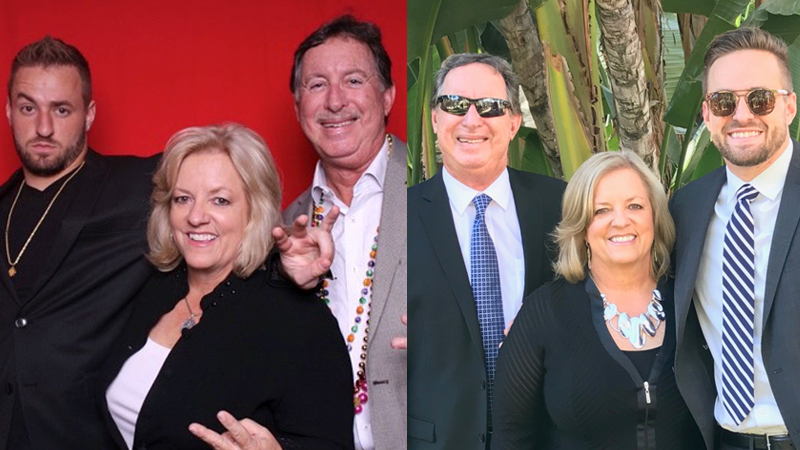
Suicide is preventable and help is available. If you are concerned that someone in your life may be suicidal, the five #BeThe1To steps are simple actions anyone can take to help someone in crisis. If you are struggling to cope and would like some emotional support, call the 988 Lifeline at 988 to connect with a trained counselor. It’s free, confidential, and available to everyone in the United States. You do not have to be suicidal to call. If you’re not comfortable talking on the phone, consider using the Lifeline Crisis Chat at www.crisischat.org.

